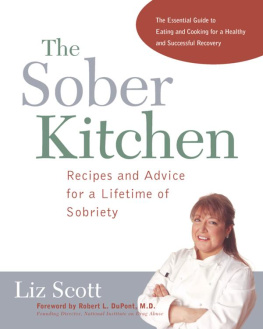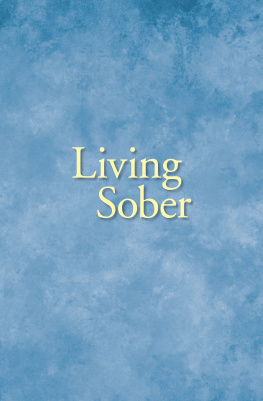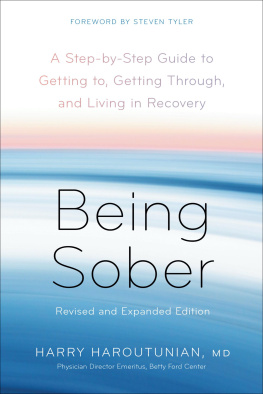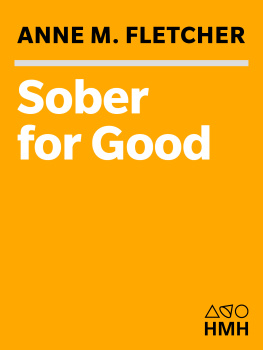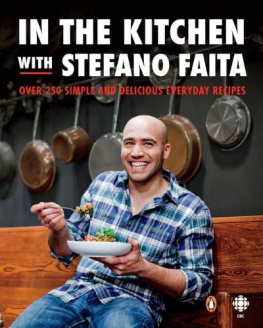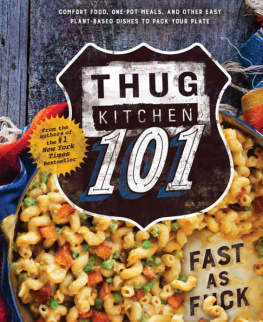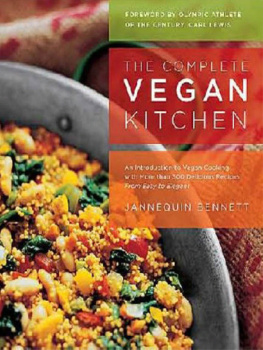THE HARVARD COMMON PRESS
535 Albany Street
Boston, Massachusetts 02118
www.harvardcommonpress.com
2003 by Liz Scott
All rights reserved. No part of this publication may be reproduced or
transmitted in any form or by any means, electronic or mechanical, including
photocopying, recording, or any information storage or retrieval system, without
permission in writing from the publisher.
Printed in the United States of America
Printed on acid-free paper
Library of Congress Cataloging-in-Publication Data
Scott, Liz.
The sober kitchen : recipes and advice for a lifetime of sobriety / Liz Scott.
p. cm.
Includes bibliographical references and index.
ISBN 1-55832-220-5 (hc : alk. paper)ISBN 1-55832-221-3 (pbk : alk. paper)
1. Cookery. 2. AlcoholismDiet therapy. I. Title.
TX714.S3925 2003
641.5'631dc21
2003007557
Special bulk-order discounts are available on this and other Harvard Common Press books.
Companies and organizations may purchase books for premiums or resale, or may arrange a
custom edition, by contacting the Marketing Director at the address above.
10 9 8 7 6 5 4 3 2 1
Cover design by Night & Day Design
Cover photograph by Amos Chan
Interior design by Ralph Fowler
In memory of my brother Nat
"Affliction comes to us, not to make us sad, but sober, not to make us sorry, but wise."
Henry Ward Beecher
Foreword
Sobriety is much more than not using alcohol and illegal drugs. Stopping alcohol and drug use is the easy part of sobriety. Every alcoholic and drug addict has stopped, as Mark Twain said about cigarette smoking, hundreds of times. The hard part of being sober is creating a whole new life that does not revolve around getting high on alcohol and other drugs.
Sobriety is also not what people who have never had an alcohol or a drug problem do. As a practicing psychiatrist, I have been permitted into the inner lives of thousands of patients over the years. One of my patients, a woman physician who suffered from Obsessive-Compulsive Disorder (OCD), lost her husband of 25 years to a rapidly developing colon cancer when she was 55, just when she was looking forward to her golden years with her soul mate. This woman had never been addicted to alcohol or drugs. In her darkest hour, she did not turn to me or to another therapist for help. She turned for help to her friends in recovery from addiction. Later I asked her why she did that. Here is what she told me: "People who have confronted addiction and built sober lives in recovery are not like other people. They have fallen to the depths of human suffering and pulled themselves out. To do that, they have had to understand life and their limitations, as well as their abilities, in whole new ways. They have a well-tempered wisdom that people not in recovery seldom achieve. I was sure that I could find in my friends in recovery the experience, strength, and hope that I needed to go on after my devastating loss." Unless you understand this woman's logic, you don't get what it means to be "sober."
Liz Scott not only gets it at a deep level, but she has also brought her passion for foodcooking it and eating itinto the lifelong process of recovery. She understands that one of the central elements of a sober life is a healthy relationship with food. This is especially to be treasured after the disordered relationships with food that characterize almost everyone addicted to alcohol and other drugs. In the misery of addiction, healthy eating is an early casualty.
The great discovery of Bill Wilson, the founder of Alcoholics Anonymous, was that the only way he could stay sober was to help suffering alcoholics. That is the twelfth of the twelve steps. Bill Wilson should have gotten a Nobel Prize for that discovery. He didn't. Instead, his prize was helping millions of alcoholics get wella far bigger reward than the one given in Stockholm each year. Liz Scott understands this principle of recovery. Honoring it, she is passing on in her book what she has found useful about food to help people in recovery build and sustain healthy, happy, sober lives.
In this wise and loving book there is a road map for a sober relationship with food and with one's own body. Liz Scott writes with an unmistakable sense of the joy that comes from escaping that dark and lonely trap of addiction. The experience of addiction makes the discovery of healthy eating all the more precious to her and her readers.
Many people in the grip of addiction cannot imagine a sober life. They see nothing but losses as they contemplate giving up their abusive loversthe alcohol and other drugs that have decimated their lives for years. This book is a powerful antidote to that hopeless attitude. It radiates the love of the sober life. This book celebrates the little miracles that are all around us every day, surprising and beautiful miracles that cannot be seen through the dense fog of active addiction. Liz Scott's book is one of those little miracles.
Robert L. DuPont, M.D.
Author of The Selfish Brain: Learning from Addiction; founding director of the National Institute on Drug Abuse (NIDA); president of the Institute for Behavior and Health, Inc.; vice-president of Bensinger DuPont and Associates; and clinical professor of psychiatry at Georgetown Medical School
Preface
As a professional chef in recovery I was faced with a daunting prospect: Did I have to abandon the career I loved to protect my sobriety? Early in treatment, I was warned of the danger of being around alcohol. "People, places, and things" associated with drinking and drug use had to be avoided at all costs; cravings could be triggered and recovery could be at risk. When my counselor looked me straight in the eye and said, "You may have to find a new career," I realized what I was up against.
Cooking was my life. After working on the periphery of the food business for years, I had finally become a professional chef and I loved my job. My livelihood had become my lifeline and I honestly felt, after many career twists and turns, that I had finally found my calling. Give it up? There had to be another way.
It is true that the culinary world is not conducive to sobriety, especially the restaurant scene. In addition to being around alcohol nearly all the time and using it as a staple cooking ingredient, the lifestyle of a chef practically screams relapse. Long, tiring hours, poor eating habits, constant adrenaline rushes, and late-night socializing all come with the territory. Although I hardly ever drank when I worked, I always made up for it when the night came to a close. It was my "reward" for all the hard work and frenzied activity of the day.
Fortunately for me, I had already begun to trade in the hectic pace of traditional chef work for the more civilized life of a "personal chef" and was slowly building up a solid clientele in my vicinity. I liked being my own boss, working reasonably normal hours, and catering parties and events. I had eliminated a lot of the "slipperiness" of my environment. But cooking without alcohol? I wasn't sure if I could. Everything I knew from my culinary training and first-hand experience told me it was necessary as a "flavor enhancer" and besides, it evaporated in the heating process, right?
Despite what just about every professional chef and gourmet food writer has said, I discovered that alcohol does not "burn off" when cooked. In fact, as much as 85 percent of the original alcohol content can find its way to your plate, depending upon the type of alcohol used and the cooking method employed. And there was more. Recent addiction studies indicated that not only can traces of ingested alcohol activate brain activity in the addicted, but visual stimuli or cues (such as simply looking
Next page
